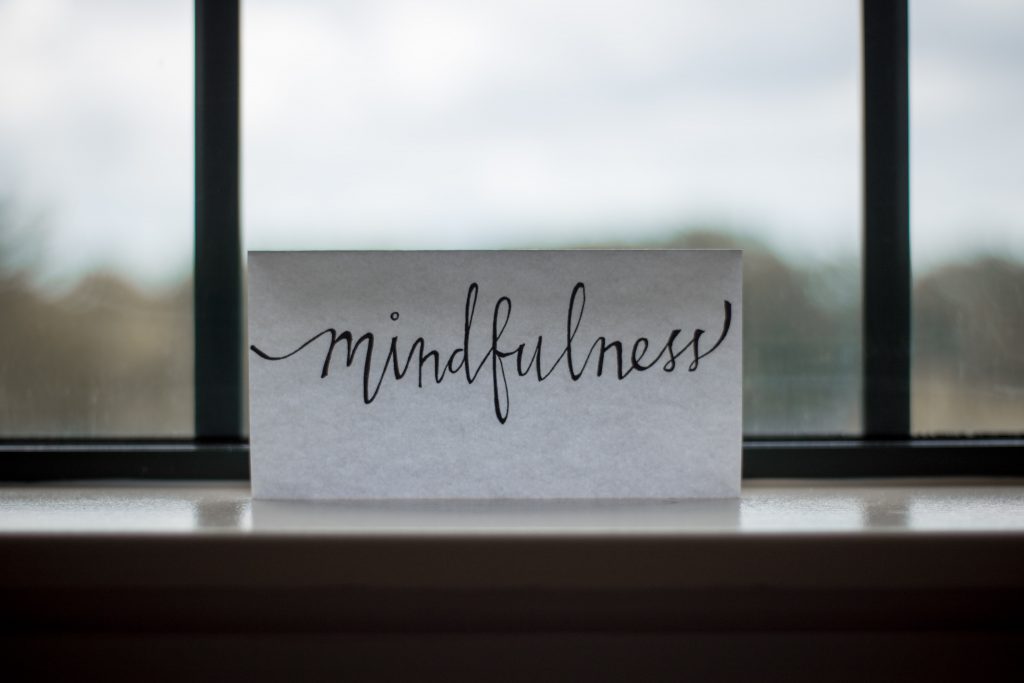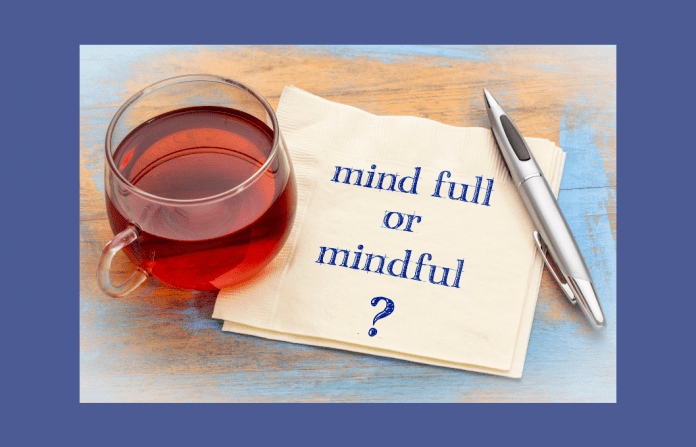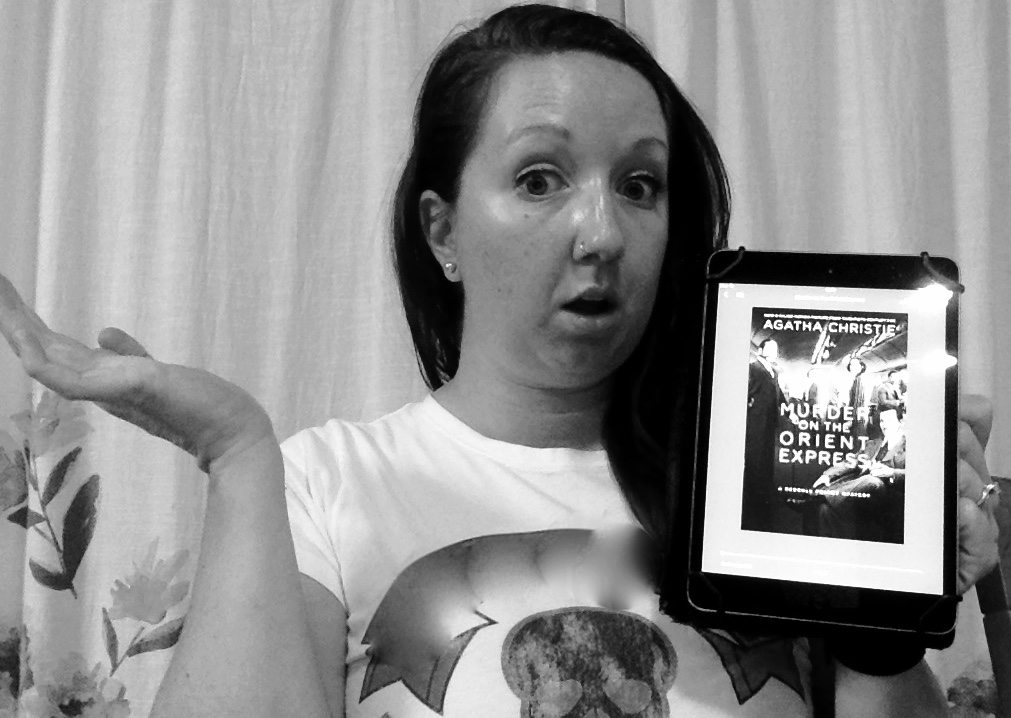Our busy, complicated lives sometimes bring a wave of negative emotions: sadness, jealousy, depression, grief, anger, confusion, anxiety, and stress. It is all too easy to succumb to the powerful nature of these emotions and allow them to control our moods and decisions. Mindfulness and meditation can help you handle emotions, lower stress levels, feel happier, and find peace and satisfaction in your life.
What is mindful meditation?

Mindful meditation does not require that you play chiming music, cross your legs, or chant “OM.” You don’t even have to close your eyes if you don’t want to!
Jon Kabat-Zinn, who is largely credited with bringing the popularity of mindfulness to the United States and refining it through his renowned Mindfulness-Based Stress Reduction program at the University of Massachusetts Medical Center, defines mindfulness like this:
Mindfulness means paying attention in a particular way; on purpose, in the present moment, and non-judgmentally.
Mindful meditation is choosing to focus on the present moment without being distracted by thoughts of the past or future.
What are the benefits of mindful meditation?
Many studies have been conducted into the effects of mindfulness and meditation on the human mind and body. It has been shown to:
- Reduce stress and reactions to events
- Reduce depression and anxiety
- Strengthen attention, memory, and ability to tune out distractions
- Increase compassion and empathy for others
- Create positive changes in brain structure
Studies also observed positive changes in the participants’ relationships with others and their physical health.
So how do I practice mindful meditation?

Start your day with mindfulness:
Before you get out of bed or even open your eyes take a moment to notice all the physical sensations of your body. Feel the softness of your pillow or the weight of your blanket. Observe if you have any tension or pain in your body. What can you hear, smell, or otherwise sense? Now open your eyes and add what you see to your list of senses. See how long you can lie still before your thoughts drift to something other than your body or your immediate surroundings.
Be mindful of your body throughout the day:
Stop periodically to assess your posture, breath, pain points, and any other sensations you are feeling. Take time to mindfully move your body observing where you feel stiff or loose. Stretch for a few minutes while focusing on slow even breaths.
Use routine activities to hone your mindfulness skills:
One of the best ways to create a mindfulness habit is to be mindful during your daily tasks. This includes things like brushing your teeth, using the restroom, showering, driving, mowing the grass, and so on. Focus on the little details of what you are doing without allowing other thoughts to intrude.
Focus on your eating:
Chew your food slowly and be fully aware of how your food looks and smells. Give yourself permission to really enjoy the tastes and textures. Pay attention to your body cues to eat when you are hungry and stop when you are no longer hungry.
Conversing:
Give your full attention to your conversations and the other people involved. Are you listening with your full awareness, or are you impatiently waiting to speak again? Don’t think about what your response is, instead focus on the facial expressions, body language, and intonations that communicate every detail that person is attempting to convey to you.
Use music as a mindfulness practice:
Listening to music is another great opportunity to practice mindfulness! As you listen, try to identify the instruments that you hear. Truly listen to and try to understand every word in a song. Notice how the music makes you feel. Close your eyes and allow the music to bring pictures to your mind.
Ride out cravings:
When you suddenly have an urge to do or eat something you know you shouldn’t, resist that urge. Notice your thoughts and body sensations. Dig deeper: what is the emotion driving your desire to do something unhealthy? Keep your attention on them until they fade away.











